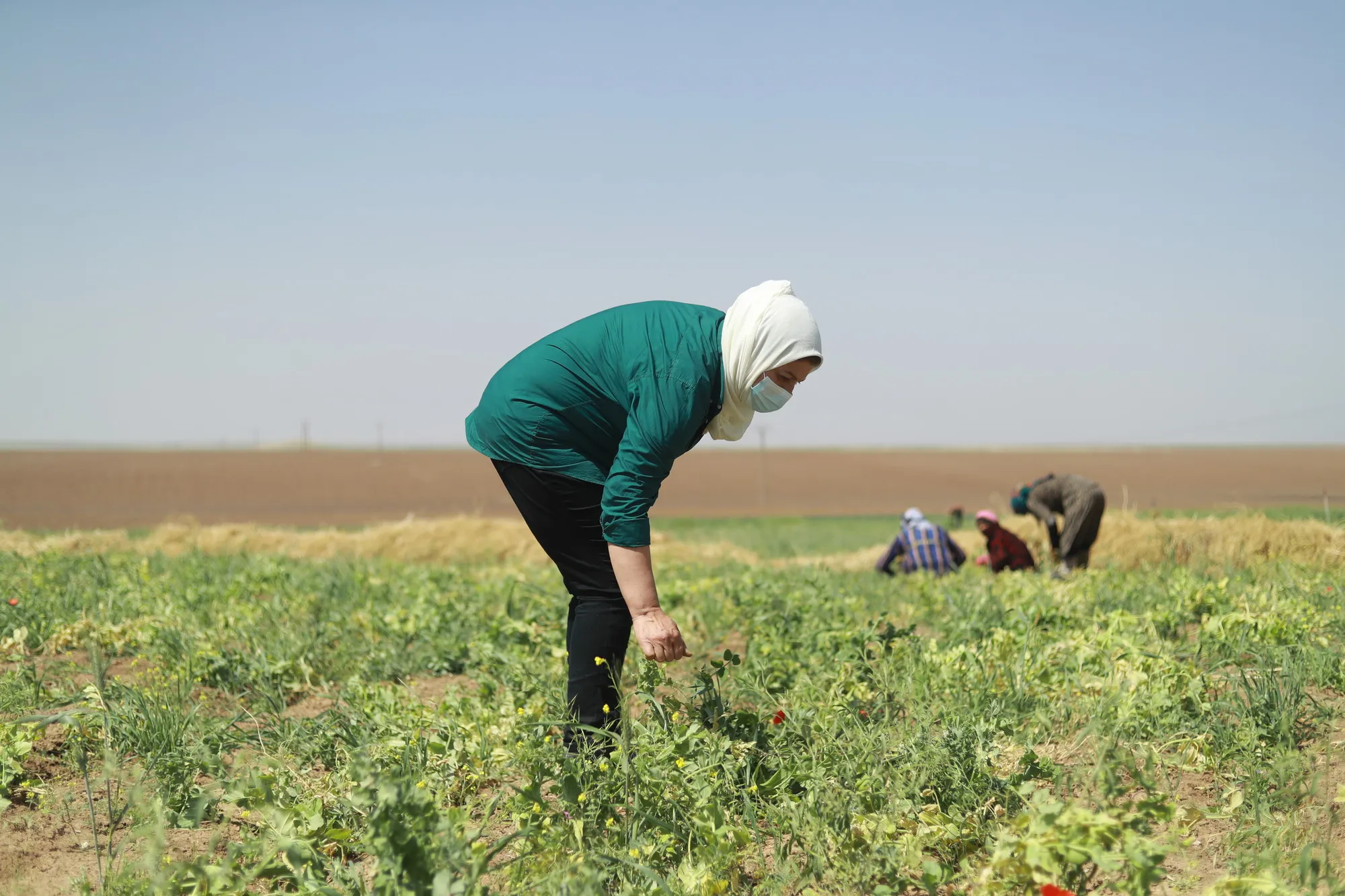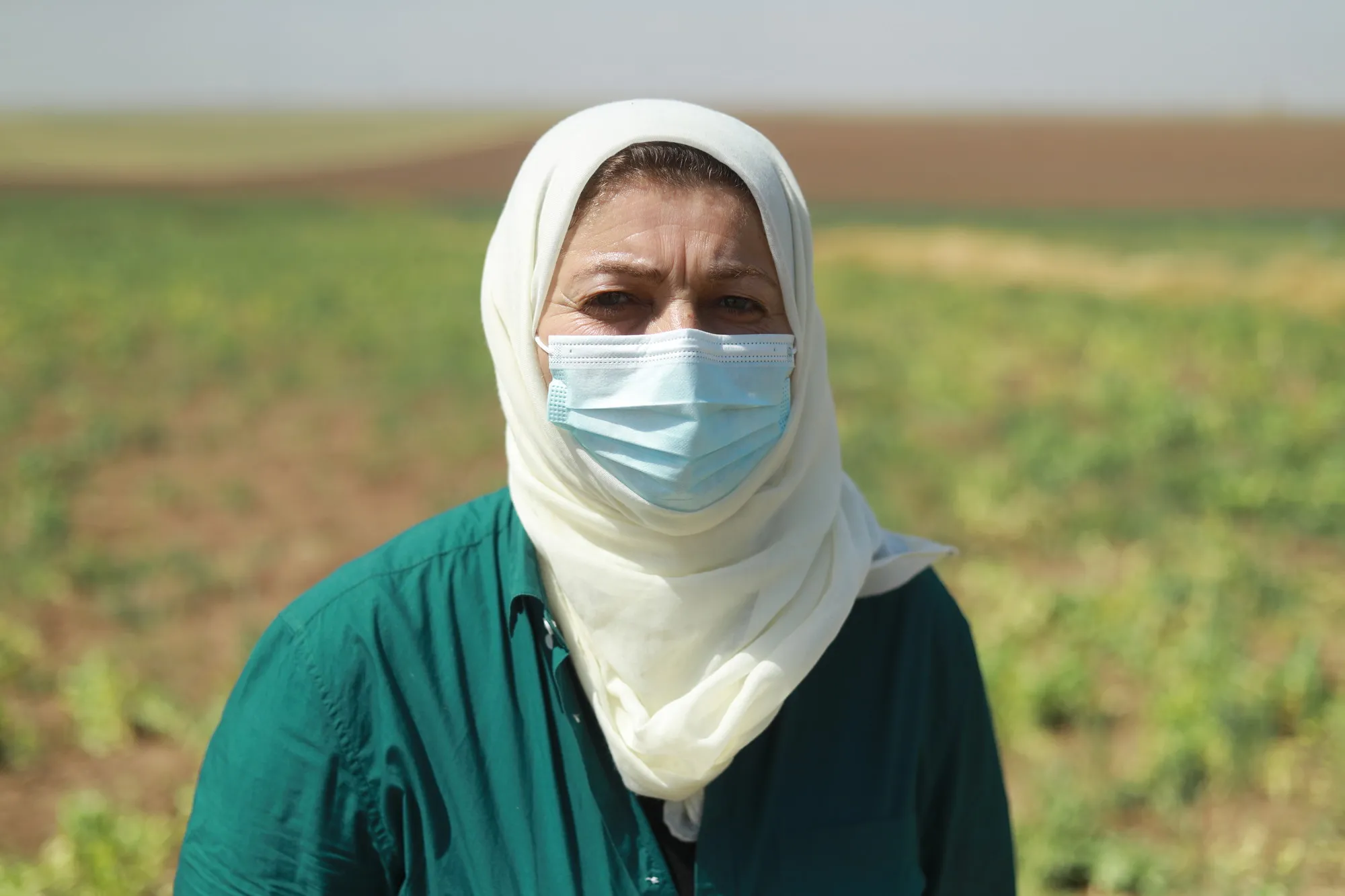A few months ago, Amal took part in CARE training, and subsequently received $5,000 which she used to grow her business, renting a piece of land to cultivate fruits and vegetables. At the beginning, it was difficult to find other women who were willing to work for her. “Preparing land for planting is hard physical labor,” she recalls. “They were afraid it would be too exhausting for them.”
Amal decided to hire two men to do the initial work, and then hired a local woman who was able to reach out to her network and find additional women employees.
Today, she employs 11 to 15 women, depending on the season. Many have either lost their husbands during the war, are divorced, or single. They are particularly affected by poverty and often face violence and abuse. “I feel very good about what I do and about the opportunities I am creating for my female employees,” she says. “Being part of this project has really changed their lives. They can now buy food and other essentials for themselves and their families and do not have to depend on the mercy of others.”
Amal knows how good it feels not to have to depend on anyone. While she and her husband have always been a good team, she is happy she can now contribute to her family’s income.
“I don’t like asking for money. I like earning my own,” she says with a big smile on her face. Amal’s daughters all go to school or study at university. She wants to make sure her daughters receive the education she herself missed out on.
After many years of people telling her that a woman’s place is her home, Amal is now a respected and vocal member of the community. She receives lots of requests from other women who wish to work for her, and male community members respect what she has achieved for herself and her employees.
“My dream is that parents educate both their sons and daughters,” she says. “As a society, we will not be able to succeed if women are not receiving adequate support. One hand cannot clap. We need to be strong as a community, and a community consists of both men and women.”
*name changed


